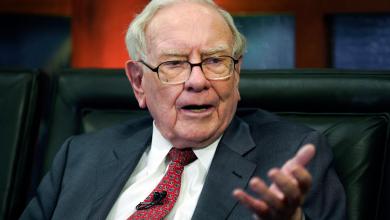‘People … really need some help’
Conservation scientist Dr. Rae Wynn-Grant began rethinking how her work could improve the lives of marginalized communities when Hurricane Katrina swept through New Orleans in 2005, killing nearly 2,000 people and causing billions of dollars in damages.
At the time, Dr. Wynn-Grant — an expert in how human activities influence carnivore behavior — was doing fieldwork in Kenya. As detailed by One Earth, she recalls Maasai villagers asking her: “Why are you here? You’re all the way across oceans and continents studying our wildlife, but it looks like your people and your community at home really need some help.”
That experience moved her to consider how conservation could empower marginalized communities to protect the ecosystems on which everyone relies for survival.
While complex elements contribute to whether a population is more vulnerable to the effects of a warming climate — including supercharged extreme weather, food insecurity, and more favorable conditions for disease spread — economic, racial, generational, and regional disparities are among the factors playing a role.
For Dr. Wynn-Grant, a Black woman in STEM — a field with 8% Black or African American workers in the United States in 2021, per Science & Engineering Indicators — it is crucial to consider systemic roadblocks that hold people back from taking eco-friendly action.
“We must understand that saving ecosystems also means addressing the systemic inequities that keep many from participating in conservation,” Dr. Wynn-Grant said, per One Earth.
Watch now: How bad is a gas stove for your home’s indoor air quality?
In addition to advocating for more women and people of color to consider STEM careers, Dr. Wynn-Grant is helping make environmental topics accessible to everyone through her award-winning podcast, “Going Wild with Dr. Rae Wynn-Grant,” produced by PBS Nature.
The podcast challenges listeners to examine their relationships with nature, cultivating love and respect for the planet. Dr. Wynn-Grant is also part of NBC’s Mutual of Omaha’s Wild Kingdom. Both programs are not a far departure from how Dr. Wynn-Grant first discovered her own love of nature. Speaking at the 2024 Bioneers Conference, the ecologist revealed that watching nature shows as a child helped her connect with the importance of responsible stewardship.
As One Earth highlights, Dr. Wynn-Grant’s scientific research involving carnivores — and how our activities are contributing to the growing problem of human-animal conflict — “underscores the need for proactive solutions,” like the development of wildlife corridors or crossings. It also spotlights how everyone can play a part in creating a healthier tomorrow.
One of the simplest ways to get involved is to properly secure your trash and use the appropriate disposal bins at parks. If you want to take things a step further, investing in a reusable water bottle will save not only waste but also money down the line.
“Animals and ecosystems have a lot to teach us about mutual respect and the importance of caring for one another in mutually beneficial ways,” Dr. Wynn-Grant said, per One Earth.
Join our free newsletter for good news and useful tips, and don’t miss this cool list of easy ways to help yourself while helping the planet.
Source link

